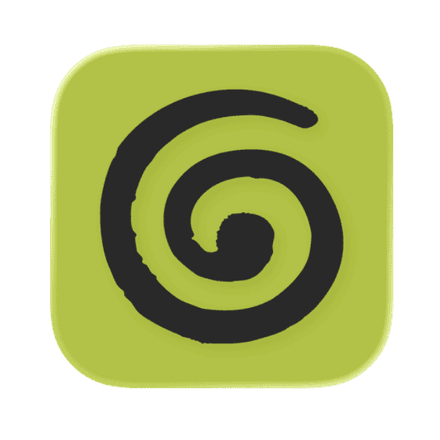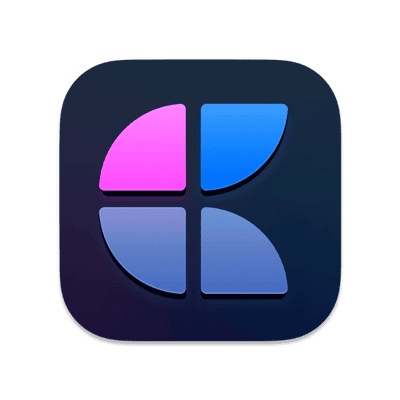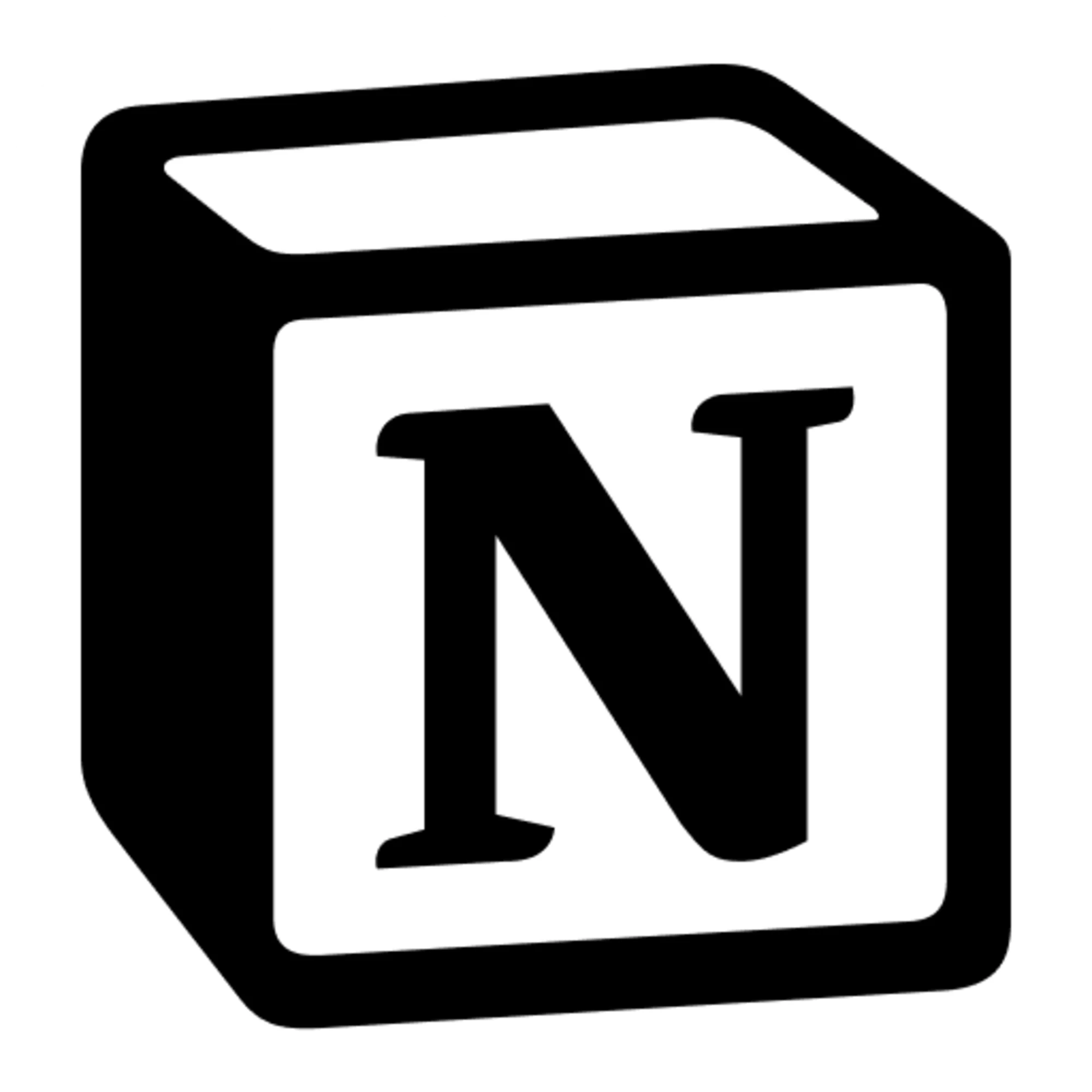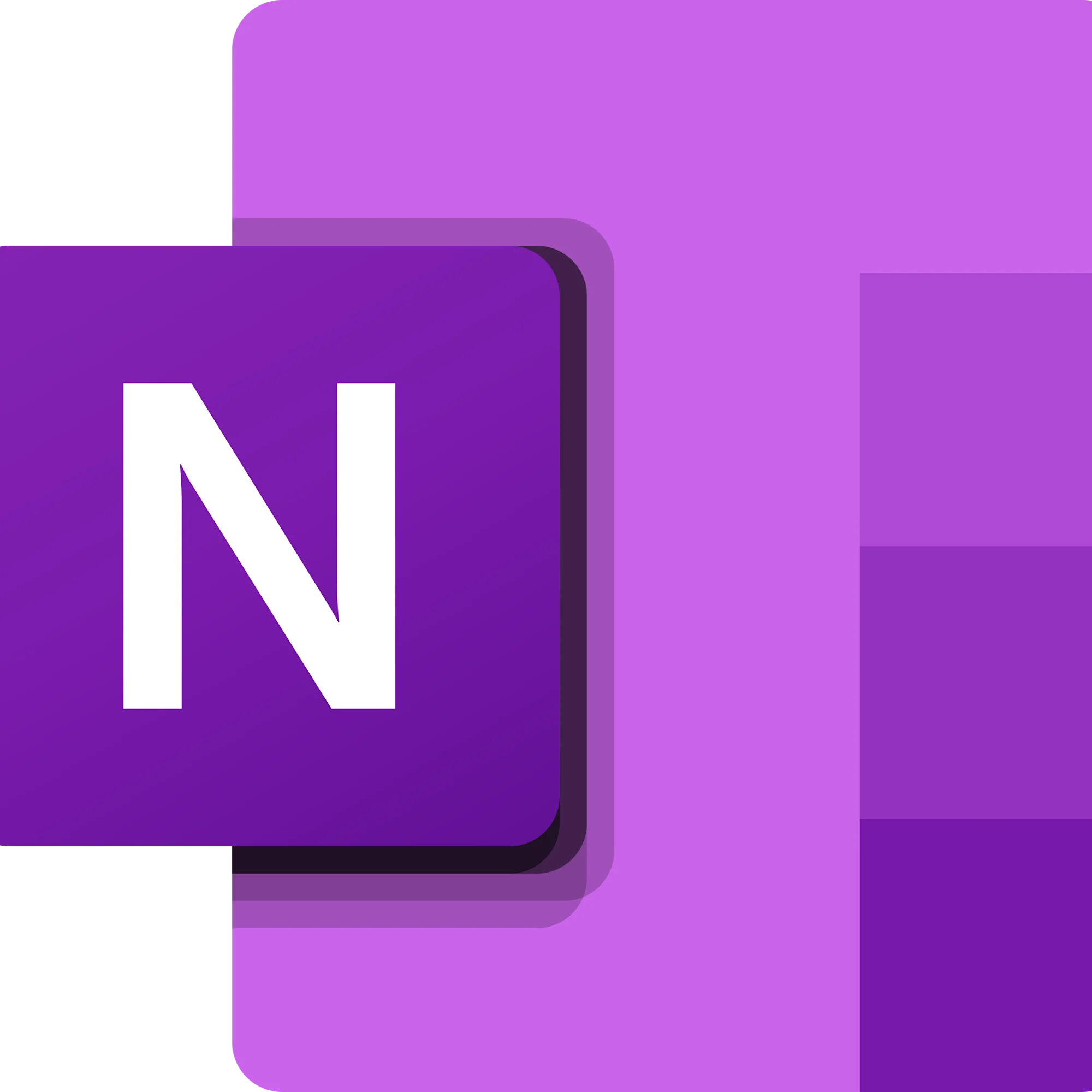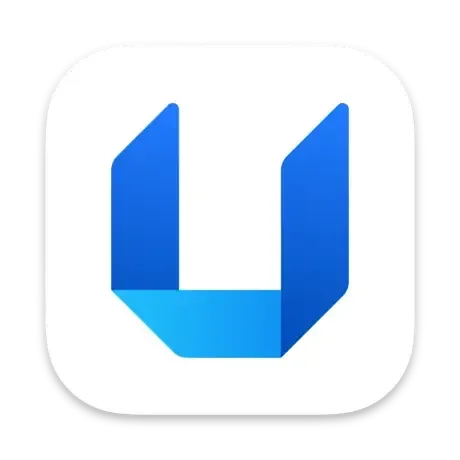🏆 Top Picks
Here's our top Evernote alternatives right now: Best All Round Alternative - Notion Best Free Alternative - OneNote Best for Writers & Researchers - Obsidian Best for Students - RemNote
Best for Knowledge Workers - Capacities Best Lightweight Alternative - UpNote Best for Productivity - Amplenote Best for Creatives - Milanote Best for Freelancers - Reflect Notes
Best AI Bookmarker - Recall AI These tools have been selected for best recommendations for your needs.
Notion
Best for All Round
Notion is one of the alternatives to Evernote and has already become the home for many millions of people leaving Evernote.
One of the reasons why people seek out Notion is that is it free with unlimited blocks (no notebook or note limits) and it is very customizable allowing you to build advanced set-ups with databases - perfect for shaping to your needs.
For many others, it has become a productivity hub for their ideas, notes & even projects. We'd recommend Notion as a replacement to Evernote if you're looking for free, reliable replacement and something that can be shaped to your note-taking needs.
It comes with a web clipper, good development speed (something Evernote lacked in the past) and a customization for growing it into a productivity system. Powerful databases allow you to create whatever you want. Database templates help to form a template for routine note-taking.
Comes with Evernote importer for saving time bringing notes in. Works on iOS and Android well for taking quick notes or via Web Clipper. You can build more structured "second brain" set-ups in Notion than Evernote.
Can be overwhelming for new users getting started. Might be too much crafting and creating your workspace for some people who want out-of-the-box solutions.
Cheaper - Notion has unlimited blocks for free. They only limit you on features and most of those are AI or business orientated, or extending your file limits. Even if you go with the Notion Plus, it'll charge you $8 per month, the same price as Evernote.
More Customizable - Notion is inherently better at helping you design your notebooks. You can add tags, use AI to help automate elements of each new note and use database templates to save time on regular notes.
Better for Planning - Whilst Evernote does have tasks & calendar, you cannot use the array of templates to create a book tracker, or build a habit monitoring system. The optionality to create additional planning tools in Notion is far greater than what Evernote offers.
Better for Team Sharing - You can invite teams and individuals outside into your Notion workspaces for them to collaborate with you on projects, or other materials. You can even turn your Notion pages into websites using "Notion Sites" and attaching domains for easy sharing.
Better for Systems - Say you want to build a second brain in Notion, this works well. It is very customizable allowing you to adapt to any productivity set-ups or needs recommended. Even if you're using this as an internal team wiki for knowledge, you can find it helpful.
Better Set-up Time - Evernote doesn't require vast amounts of set-up time, as you have notes, calendar & tasks there to get things going. If this is important to you, Evernote does a better job at this.
Google Calendar integration - Connecting notes to Google Calendar is marginally better than what you get inside of Notion, this is because you don't need Notion Calendar to set this up.
Those who want to save money on their note-taking app as Notion is free to use with no note-taking limits. Those who want something reliable and they can customize to their own needs.
Microsoft OneNote
Best Free Alternative
Looking for something free to use? OneNote is a free alternative from Microsoft that is great for students or those in the Microsoft ecosystem. OneNote is a dream for those who don't want to spend a dime, and have been hit with the limits or costs of Evernote.
It also is a reliable tool and used with a Microsoft account, so they keep the app constantly updated and managed. It comes on all devices making it great for cross-platform use and comes with AI Co-Pilot, if you have the Microsoft AI package in 365.
It isn't the most attractive note-taker to look at, but what it will do is provide the basics, much like apps like Google Keep but with more powerful features, that if your goal is note-taking, you'd consider against Evernote.
Easy to use and approachable for most people. Works well with the stylus devices for sketching ideas and thoughts. Comes with Microsoft Co-Pilot (check your plan) to access AI research and access. No cost to run OneNote. Not the most attractive, or minimal to look at compared to Notion.
Cheaper Pricing - There's no cost to using Microsoft OneNote meaning you won't hit any limits.
Better for Sketching - If you have Microsoft Surface devices, or tablets, there are more powerful ways to take notes using your stylus. This makes it better for having sketches alongside your notes, perfect for students looking to bring notes to life, or those who are more visual thinkers.
Better for AI Chat - If you have Microsoft 365 and Co-Pilot, then you can use it alongside your notes. Evernote doesn't have a fully baked in AI system yet that you can use, but Microsoft leans on their existing relationship with OpenAI to help build a Co-Pilot to use for your notes - ideal for researchers or quick web result access.
Better Design - If you care about design, OneNote isn't the most flawless looking. It feels a little stuck in 2013 and a bit old school in looks.
Better Planning Abilities - Evernote allows you to plan your tasks, manage calendar & more - that just isn't available in OneNote, it is much more note-focused.
Those who are looking to come notes with sketching. Those who are studying, or use for education, who need something structured & reliable. Those who want to save money on their note-taking app as there's no limits compared to Evernote.
Note-taking and organising app perfect for students, academics and general notes.
Obsidian
Best for Writers & Researchers
Obsidian is a genuine consideration to replace Evernote if you're into how your notes connect and writing in-depth notes. This is the perfect note-taking app for those who want a simple, minimal, markdown and security focused tool.
You can connect notes up, use a more PKM (personal knowledge management) system to organize notes, and better visualize notes with Obsidian Canvas. For those who are want a blend between a text editor and a note-taking app like Evernote, this is a superb middle ground.
Free and available on all devices. Security focused as notes are stored on device and in markdown format. Connect notes together and view all of that in a graph view to see note relationships. Has a "Canvas" mode for bringing notes together and in a whiteboard style view.
Lacks syncing in the free plan meaning you're limited to 1 device unless you pay. Can be overwhelming with plugins and learning how graphs/bi-directional linking works.
Same Sync Limits - Evernote limits you to just one-device, much like Obsidian, so if that wasn't a worry for you. This is a good option.
Better for Security - Notes hosted on Obsidian are all local-first meaning you can store them on your device and in a vault. Whereas with Evernote, they are locked into the cloud storage. You can do that with Obsidian too with Obsidian Sync, but it is E2E encrypted meaning notes are more secure than on Evernote's platform (subject to change).
Better Writing Aids - Obsidian has features like character count, minimal editor view and preview modes for viewing notes together at the same time. This makes it much better for researchers who want to view multiple notes at once, and for writers who want a focused view and reducing distractions.
Better Plugin Marketplace - Evernote has a template gallery, but Obsidian has themes and plugins for creating small components to add to your Obsidian like a calendar, kanban layout or more. They don't require much additional work, but for some can be tricky to set-up.
Better for Visual Thinkers - There's a mode in Obsidian called Canvas which people can use to move their notes, images and links around a whiteboard. Perfect for those who like to use a Miro type board to bring notes from their traditional structure.
Better Calendar & Tasks - There are Obsidian plugins to re-create this, but you can plan and manage tasks better in a system with Evernote. So if that's something you want out of the box, Evernote might be better suited.
Better AI Features - Obsidian has no AI features, and there are no plans to add any. Those who want to use it to take detailed notes or book or researching-based writing. Those who are wanting a strong, security focused markdown alternative to Evernote. Those who want to save on cost as Obsidian is free to use.
RemNote
Best for Students
Whilst OneNote is a good Evernote alternative for students, RemNote might be even better. This app is popular with students for a few features, the best one is that you can turn any of your notes into flashcards.
This is a game-changer for many students who want to take control of how they study, but it gets even better as there's a dashboard for seeing all the flashcards you have studied, a system called active recall to re-surface them and even a way to see streaks and progress on them.
RemNote doesn't just do flashcards, it does note-taking very well, allowing you to connect notes to PDFs and presentations, use AI to help make your note better, a way to connect up notes together and there's no limits to how many notes and flashcards you can make.
It doesn't do as well for those who aren't students, but for those who are, you'll love RemNote.
Easy to use and very similar to Evernote's feel. Comes with PDF, presentation and audio tagging for notes. No limit to how many notes you can take on the free plan. Comes with AI features like annotation and abilities to make study smarter. Helps you plan exams with a scheduler type feature.
Not as good for post-college or university access of notes. You are limited to how much annotation of PDFs you can do in free plan.
No Note Limits - There's no limits on how many notes or flashcards you can add.
Better for Study - The active recall and flashcards feature rocks, but there are even more modes in premium that unlock planning for exams, PDF annotation and more. Evernote doesn't do so well for students, despite their pricing for students.
Has Flashcards & Quizzes - Evernote does not do flashcard abilities. RemNote tailors towards this and presents a good set of features around planning.
Better Price for Students - There is a 25% discount on plans for students, but you need to provide the proof that you are one.
No Limit on Devices - You can sync your use of RemNote across multiple devices avoiding a limit to one-device that Evernote has in place.
Better Planning - You can connect up calendar and tasks, whilst you can do some basic checklist and task abilities in RemNote, it is no where near the level of planning abilities you get in Evernote.
Those students or learners who need a robust note-taking system designed for them. Those who want to use flashcards to learn their notes, even if that is used for book highlights and more.
Capacities
Best for Knowledge Management
Capacities is one of the newest options on this list, but one that shouldn't be skipped in your search. It allows users to create a structure to all of your notes that reflects the real world.
Say you have a meeting and you want to take notes on it, you can create an object on for meeting. This isn't a tag, or a folder, it's an object. An object then helps you create future meetings and say you added a "person" object to your account, you could track the people you meet in meetings and build a branched network of notes.
This might sound overwhelming, but it's actually a pretty real-life model of your note-taking and something that people are really enjoying using as a replacement to Evernote.
It has AI chat for connecting notes and objects to an AI assistant to help understand your notes further, this is a good way to help add context to notes to produce that makes it unique to Evernote.
Whilst it doesn't do calendar, tasks & notes in the same way as Evernote, it does have a calendar view to help capture daily notes, add tasks and even connect with apps like Todoist too. This makes for a lightweight productivity system that you can use to better manage your notes and what's ahead.
Object note-taking is unique, but reflects the real-world of note-taking. It is cross-platform and downloadable on all devices including Linux too. Daily notes make life easier for using it as a journal style app too. Connects with Google & Microsoft calendar to import meetings & events.
Being actively developed on and has unlimited notes for free users.
Objects might be too overwhelming to set-up and use actively. Calendar connections are limited to Capacities Pro users.
Better Design - This is entirely subjective, but Capacities is sometimes called the Notion of note-taking, thanks to the minimal, black & white design. It does look better than Evernote in terms of look and feel, but this is of course our opinion.
No Note Limits - There are no limits to how many blocks, notes & objects you can add. Evernote is limited to 50 notes in the free plan and one notebook. There's no limit inside of Capacities with no device limit too, meaning you have time to upgrade if you decide.
Better Organization - Evernote relies on organizing notes into your folders and notebooks, but Capacities does a better organizational structure by allowing you to create objects. Overtime, the way you see how notes connect together in graph views and elsewhere just makes more sense.
Better AI Assistant - Inside of Capacities Pro, there is a way to chat with your notes. This is called AI Chat but what makes it better than Evernote is that you can pool notes from your collective knowledge meaning you can attach an object and get chatting with it.
Access for Linux - Evernote doesn't offer Linux as a platform, Capacities does.
Task Management - Evernote has a better way to create and manage tasks. It flows well and allows you to quick capture tasks, associate them with notes and time-block them into your day. This is better than how Capacities does this despite "Task Actions" being a good layout inside of Capacities.
Those who want a more structured way of organizing notes (using objects). Something that looks a lot like Notion without the complexity of databases. Those that want to use AI to chat with their notes.
UpNote
Best Lightweight Alternative
UpNote is often called the best-value note-taking app, and the one to go for if you want the basics, but in a great set-up, we'd tend to agree. It is a note-taking app for taking simple notes with light multi-media use.
It comes on all devices and keeps things simple, whilst adding a well-built tool for handling your note-taking.
One of the things that a lot of people like about UpNote is that it feels cosy allowing you to add notebook covers, has a simple layout for managing notes, light tasks & a lot of people say it reminds them of Evernote in the early days.
The app has a web clipper, focus modes, per note protection, linking notes and good export abilities, but this isn't the reason why people rave about it. In our tests, we loved how UpNote was just easy to add a note and had a solid, approachable note editor, allows you to add images & felt not overly overwhelming.
It's hard to find negative about UpNote, but it isn't the Evernote replacement if you're someone who wants something powerful - it's the perfect balance between simple, and functional. Much like Evernote, users are limited to 50 notes which makes it a lot less appealing, but the price might change your mind on that.
Great themes and customization. $39.99 for lifetime access is fantastic. Good for saving smart queries and pinning them to your account. Good focus modes for blocking distractions. Notebook covers look fantastic for aesthetic set-ups. Good for markdown users.
The biggest con is that you are limited to 50 notes on the free plan. Lacks AI features compared to Evernote.
Better Value - UpNote is $1.99 per month, or just $39.99 lifetime (to keep forever) making it perfect for those who have a lower budget. Despite, it limiting you to 50 notes per account, it makes up for it with an approachable pricing against Evernote's $7.99 per month pricing with no lifetime options.
Less Overwhelming - If you're looking for something that does less in terms of features and in an approachable way, UpNote is a good choice. They have a dedicated Evernote importer and it feels functional, but less intense as Evernote has it.
Access for Linux - Evernote doesn't offer Linux as a platform, UpNote does.
Better Productivity Features - UpNote is limited to notes and tagging any tasks inside of the account as a checkbox making it even harder to use it as a fully fledged task management tool. Evernote does a much better package for overall productivity.
Lacks AI Features - Due to the nature of UpNote, they don't have any AI features, Evernote keeps adding these to the experience.
Those who want a simple, yet functional note-taking app. Those who want to customize their note-taking app and access cross-platform apps (if needed).
